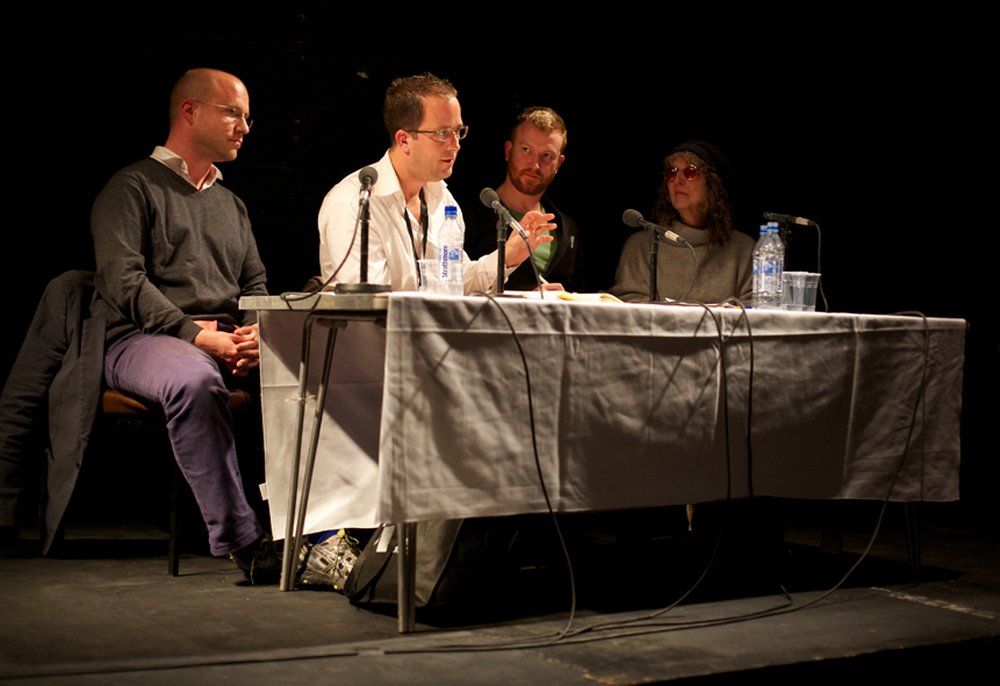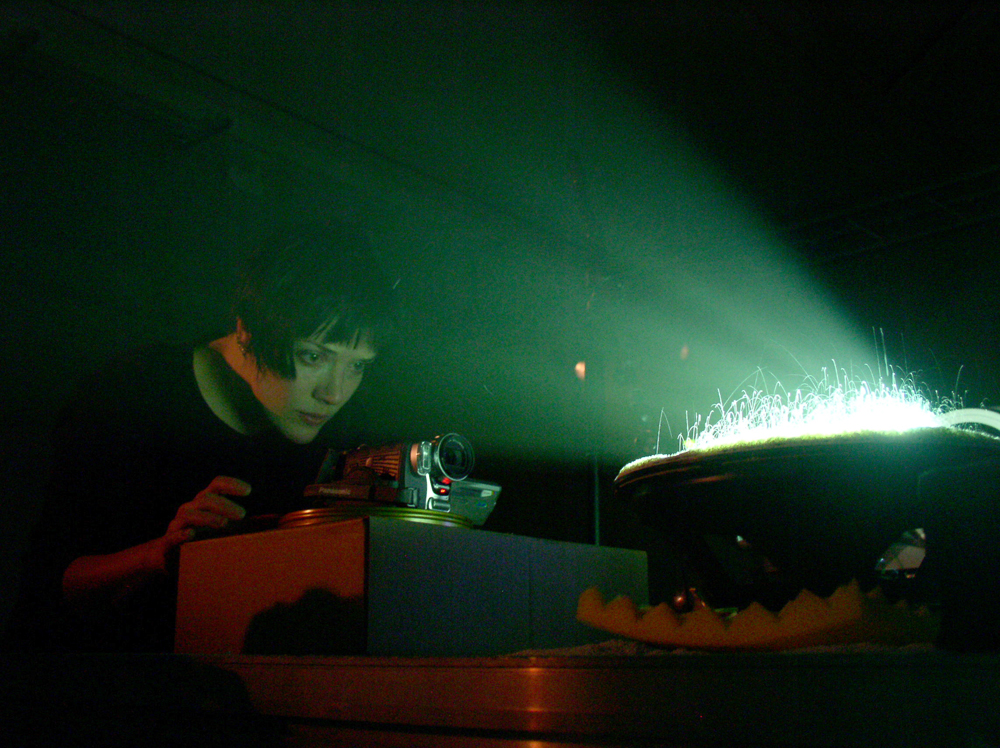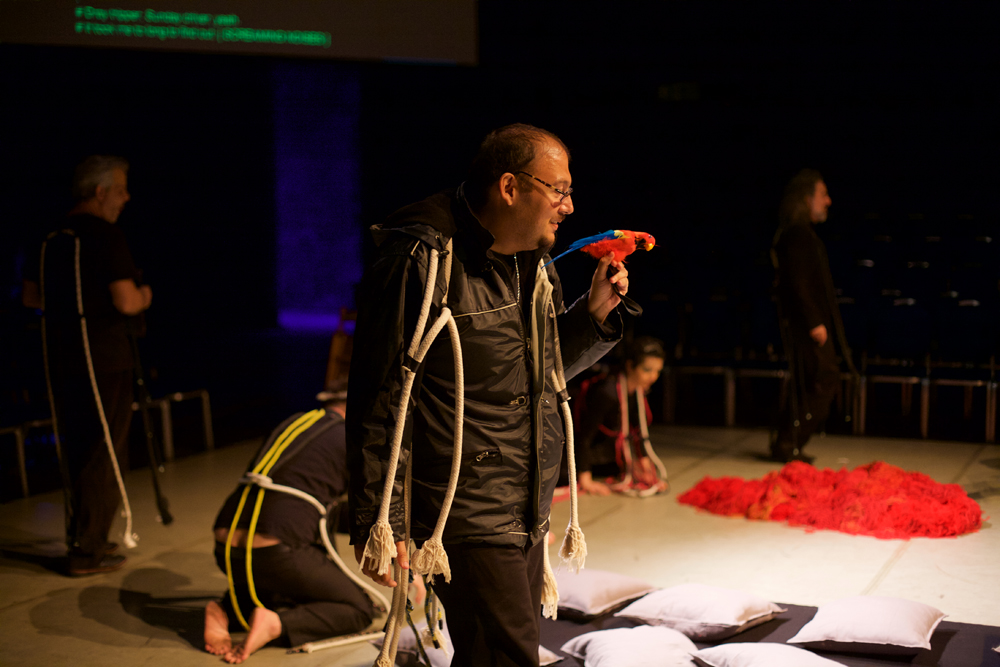
Iain Campbell
Iain Campbell F-W
A series of three short performed situations and statements to be examined or judged from the most interesting young musician in Glasgow (we think).
Arika have been creating events since 2001. The Archive is space to share the documentation of our work, over 600 events from the past 20 years. Browse the archive by event, artists and collections, explore using theme pairs, or use the index for a comprehensive overview.

A series of three short performed situations and statements to be examined or judged from the most interesting young musician in Glasgow (we think).
A full-blooded, emotional attempt to reinvigorate improvisation from a musically inclined philosopher and two philosophically inclined improvisers.

A stroboscopic and intense sensory overload of flashing abstract forms, cut to ribbons by modified projectors.

When we look, how do we objectify the body; how can we reflect on our (self) image as a construction?

Electronic music, time, thought, the word, and consecutive matters

A landmark film on black life – a poetic filmic constellation of meditations, fragments and interviews on what it means to be black in America in the 21st century, from one of its great cinematographers.

An original and beautifully simple performed installation forging a direct link between sound and image.

A Festival supporting the struggle for Sex Workers’ Rights: share knowledge, discuss, dance and strategise!

A conversation between influential figures thinking through Blackness and Indigeneity, asking: what if we took seriously the possibility that this world, as we know it, may be coming to an end? We dread the loss of this world, but have we begun to imagine the one to come?

Three intense solo performances for drums (both played and screamed through), cymbal, voice, credit card, bird whistle, and guitar amplifier/leads.

Inhabiting a different kind of energy, Ueinzz’s open rehearsals reveal a glimpse into their ongoing daily theatrical modes of caring – multiplying the ways in which their plays are meant to be felt, rather than understood.

A historical narrative of the black and Latino/a transgender, bisexual, lesbian, and gay House and Ballroom Scene in relation to race, gender, sexuality and class oppressions.